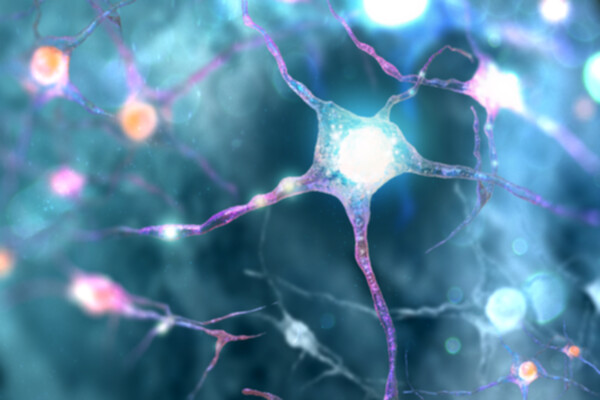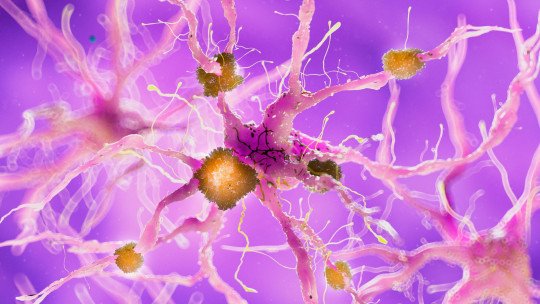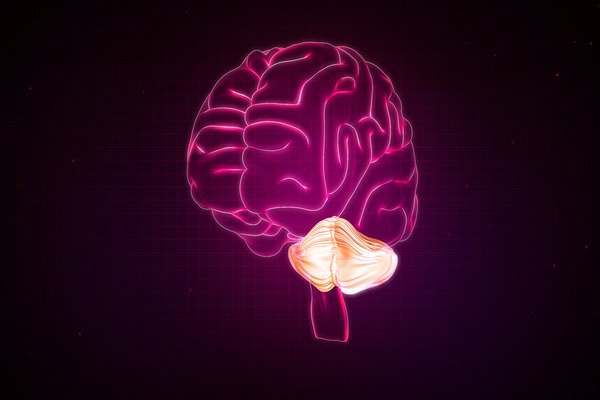What are neurotransmitters? What are the main neurotransmitters and their functions? Discover the importance of different types of neurotransmitters for your mental health.

The neurotransmitters They are our body’s chemical messengers. Its main job is to transmit information from nerve cells to target cells, that is, those that are in our muscles, glands and even other neurons.
The proper functioning of a neurotransmitter It is essential to regulate functions such as our heart rate, breathing, sleep cycles, digestion, muscle movement, appetite, concentration and mood. Therefore, knowing the different types of neurotransmitters and their functions can help us take better care of our mental and physical health.
What are neurotransmitters?
A neurotransmitter It is a biomolecule that allows nerve cells to communicate with each other. In fact, neurotransmitter signals travel from one neuron to another through synapses.
Thanks to these connections neurotransmitters They allow us to manage automatic responses such as breathing, heart rate, as well as different psychological functions such as learning, controlling our mood, as well as reactions to fear, pleasure and happiness.
Types of neurotransmitters
The neurotransmitters and their functions They have a very relevant role in our lives. Its main function is to activate or inhibit the activity of the postsynaptic cell. That is, they can enhance or reduce its functioning. Its effect can be short-term (seconds) or long-term (months and even years). The reason for this is that they allow us to have a good daily functioning. Research does not yet know exactly how many neurotransmitters exist, but to date more than 100 different ones have been detected. Despite all this variety, scientists have detected different types of neurotransmitters depending on the function they perform in our body.
- Excitatory neurotransmitters: these types of neurotransmitters They have excitatory effects on neurons. This implies that the chances of a neuron performing an action potential are increased. Some excitatory neurotransmitters are epinephrine and norepinephrine.
- Inhibitory neurotransmitters: these types of neurotransmitters They tend to have inhibitory effects on our neurons, decreasing the chances of a neuron firing an action potential. Among them are serotonin and gamma-aminobutyric acid (GABA).
- Modulatory neurotransmitters: These neurotransmitters They are called neuromodulators and are capable of affecting a greater number of neurons at the same time. In many cases, they also influence the effects of other chemical messengers.

Main neurotransmitters
There are a series of neurotransmitters which are better known within psychology due to their effects on mood and the perception of our sensations. Among them we find the following.
- Acetylcholine: Acetylcholine is a neurotransmitter that triggers muscle contractions, as well as stimulates some hormones and controls heartbeat. It is found in different areas of the central nervous system. This neurotransmitter It plays a very relevant role in different brain functions, such as memory.
Acetylcholine and its function mean that when there are low levels of this neurotransmitter, people have problems with memory and the flow of their thoughts. In this way, it promotes memory and association processes, and is also responsible for regulating the transition from sleep to wakefulness. For example, it is related to some of the effects of Alzheimer’s. - Dopamine: Dopamine is one of neurotransmitters most important for the proper functioning of our memory, attention and learning, the regulation of our behavior and the coordination of our movements. Popularly, dopamine is known as the neurotransmitter of pleasure or reward. The reason for this is that our brain usually releases dopamine when doing pleasurable activities.
- Endorphins: These neurotransmitters They are responsible for inhibiting pain signals and creating a feeling of energy and euphoria. Our body usually releases them when we laugh or when we play sports. Its effects are similar to opiates and produce a feeling of well-being. They are called the hormones of happiness.
- Epinephrine or adrenaline: Epinephrine, better known as adrenaline, is a neurotransmitter that participates in fight or flight responses in survival functions. These neurotransmitters are released when a person is stressed or scared. When epinephrine is released, our body increases our heart rate and breathing to give our muscles a boost of energy. In addition, it also helps our brain to make faster decisions in the face of danger. When a person releases too many endorphins, there is chronic stress, anxiety or depression that must be treated through consultation with a mental health professional.

- GABA: Gamma-aminobutyric acid or GABA, is a neurotransmitter whose main function is the regulation of our moods. This is because it works as an inhibitor of those neurons that become overexcited. Thus, when a person has low levels of GABA he may suffer from anxiety and irritability. The role of GABA is to reduce neuronal activity, playing a very relevant role in thoughts and the body’s response to stress.
- Serotonin: Serotonin is one of the inhibitory neurotransmitters Its main function is to regulate the activity of other neurotransmitters, influencing mood, appetite and sleep levels. According to research, serotonin plays a very important role in depression and anxiety. It is involved in different processes such as digestion, thermal regulation, appetite and sexual desire.
- Norepinephrine: Known as the stress hormone, it is, in addition to a neurotransmitter, a hormone that activates the sympathetic nervous system. It is associated with heart rate and stress response.
These are some of the main neurotransmitters that help regulate our moods and greatly influence our emotions. In many cases, regulating them can be done through different strategies that a mental health professional can recommend.
Neurotransmitters and their functions: Why are they so important?
As happens in other parts or processes in our body, sometimes things may not work quite well. When neurotransmitters and their functions Not exercised correctly affects our entire nervous system, in fact some diseases such as Alzheimer’s and Parkinson’s are closely associated with a deficiency of these substances in our body.
Furthermore when the functions of our nervous system do not go correctly, this can affect our behavior and mental state. Therefore, if any condition is suspected, it is important to consult with a professional psychologist to be able to counteract the damage that this may cause.









